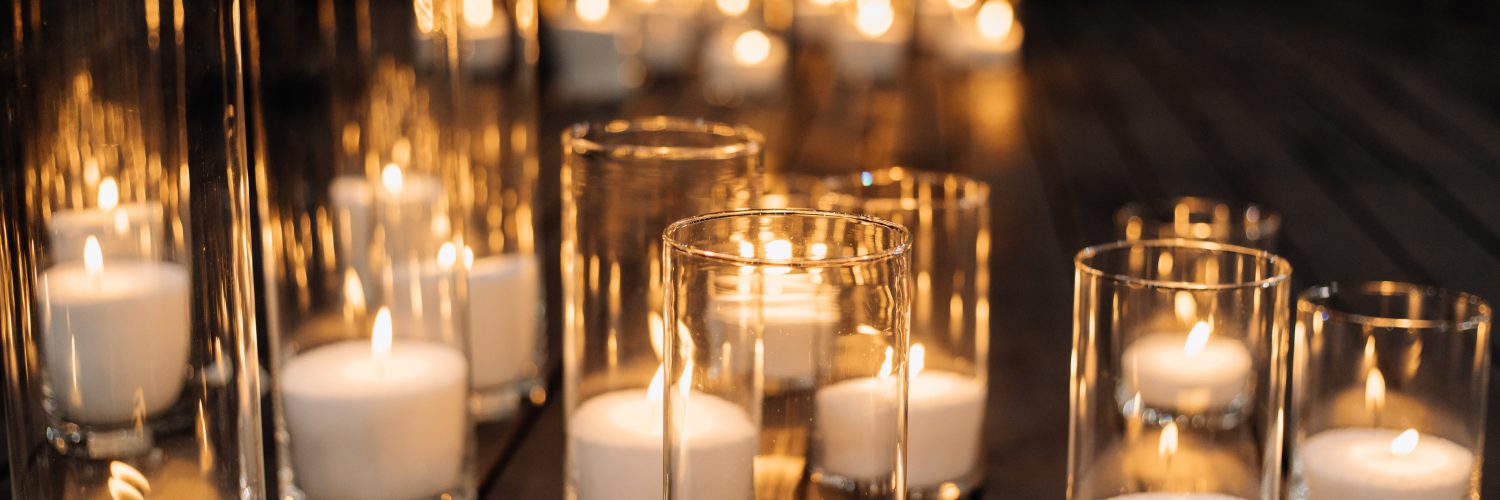There is a well-known Machlokes Rishonim regarding Pikuach Nefesh on Shabbos. According to some Rishonim, Shabbos is “Dechuya” (overridden) in cases of Pikuach Nefesh, while according to others it is “Hutra” (completely waived). The distinction between Dechuya and Hutra is invoked by the Gemara only regarding Tumas Kohanim, but the Rishonim apply it to this question too.
Examining this Machlokes in detail is beyond the scope of this essay. The following are some of the salient points:
If Shabbos is Dechuya, a Melacha performed for the sake of Pikuach Nefesh is essentially a permissible act of “Chilul Shabbos” since a person’s life is at risk. However, if Shabbos is Hutra, the act does not constitute Chilul Shabbos at all – we consider Shabbos to be a “weekday” in this regard.[1]
The Rishonim and Acharonim discuss a wide range of Halachic ramifications of this Machlokes; we have discussed several of them in previous essays.[2] For example, in cases of Pikuach Nefesh, is one obligated to employ a Shinui or may one perform the Melacha in the ordinary manner even if a Shinui would not impede the act in any way and would not endanger the patient?
This appears to be the subject of a Machlokes between the Shulchan Aruch and the Rema (O.C. 328). The Ramban (Toras haAdam, Sha’ar haMechush) implies that if Shabbos is only Dechuya in the fact of Pikuach Nefesh, one must employ a Shinui where possible in order to lessen the Isur, even though he would be permitted to perform the act in the regular manner if a Shinui would be impractical and would endanger the patient. However, if Shabbos is Hutra there is no such obligation.
We cite this example to compare (as well as contrast) it to another case:
If a person has a choice between two methods to save a person’s life, one that necessitates Chilul Shabbos and the other does not, he is presumably obligated to select the method that does not desecrate Shabbos. If he chooses the other method he has surely desecrated Shabbos unnecessarily, whether one ascribes to Hutra or Dechuya. Curiously, this does not appear to be universally accepted. Let us examine a chapter of Minchas Asher al haTorah (Parshas Yisro) in which haGaon Rav Asher Weiss Shlit”a tackles this topic at length.
We are all familiar with the Mishna in Perek Bameh Madlikin (Shabbos 29a) that states:
If a person extinguishes a lamp because he fears gentiles [who have forbidden people to light candles], bandits [whom he doesn’t want to discover his hiding place], melancholia [for whom the darkness will sooth his feelings of depression], or so that a sick person can fall asleep, he is exempt.
The words “he is exempt” (“Patur”) usually imply that although one is exempt from the obligation to offer a Chatas, it is not permissible l’Chatchila. The Gemara notes that using this expression with regard to the case of extinguishing a lamp “so that a sick person can fall asleep” is incongruous: If the sick person is not dangerously ill, extinguishing the lamp should be entirely unjustified and one should be liable to bring a Chatas. If he is dangerously ill, not only should he be exempt; it should be permissible l’Chatchila! (The Gemara answers that the Mishna does refer to a dangerously ill patient and it is indeed permissible l’Chatchila to extinguish the lamp. The reason the Mishna employs the expression “Patur” is only to contrast it with the corresponding expression – “Chayav” – that appears in the other section of the Mishna.)
The Acharonim question why the Gemara didn’t offer a simple answer to its question: Even if a lit candle is disturbing a dangerously ill patient, it would be possible to remove it without Chilul Shabbos . For example, one could cover it or carry it carefully out of the room without extinguishing it. If so, it makes sense that the Mishna does not permit extinguishing the candle l’Chatchila given that it is possible to help the patient without Chilul Shabbos.
We find two entirely opposite approaches to this question in the Acharonim. According to the Yeshuos Yaakov[3] (328:2), the Gemara indicates that even if it is possible to assist the patient without Chilul Shabbos, one may nevertheless choose to assist him with an act that does desecrate Shabbos. This is because Shabbos is Hutra when it comes to Pikuach Nefesh. The Gemara could therefore not answer that the Mishna refers to a case where it would have been possible to remove the candle and not extinguish it, because it would still be permissible to extinguish it in those circumstances!
By contrast, the Biur Halacha (278) draws the opposite conclusion. If it is possible to assist the patient without Chilul Shabbos and one chooses to assist him with an act that does desecrate Shabbos, one would be obligated to bring a Chatas! The Gemara could therefore not answer that the Mishna refers to a case where it would have been possible to remove the candle and not extinguish it, because the person would not be Patur in that scenario!
This basic Machlokes is found in the Rishonim. The Rambam (Peirush haMishnayos ibid.) maintains that it is only permissible to extinguish the candle for the patient if there is no other way of blocking the light (such as by covering it). However, the Ritva (in his second approach) states explicitly that the candle may be extinguished even if it is possible to block the light in another way.[4]
The approach of the Ritva and Yeshuos Yaakov is extremely difficult to understand. Even if Shabbos is Hutra in cases of Pikuach Nefesh, why is Chilul Shabbos justified when it is possible to save the patient’s life without it? Rav Asher offers the following explanation:
Even if we maintain that [Shabbos] is waived (Hutra) only for Pikuach Nefesh and where there is no need to desecrate Shabbos to save a life, it is forbidden to do so, even if ultimately one will save a life by means of [violating] one of the Melachos of Shabbos; thus, if a person Shechts for the sake of a dangerously ill patient when there is already meat available, he would be obligated to bring a Chatas, and one who eats forbidden foods when there are permissible foods available would violate a Lav. [Nevertheless] extinguishing the candle when it would have been possible to take it out of the room, is different, because the natural, simple, and accepted solution to one looking to darken a room for a sick person, is to extinguish the candle. The Torah permitted desecrating Shabbos for all needs of a dangerously ill patient; one may do everything that one is accustomed to doing in the week for him (in the words of the Shulchan Aruch, 328:4). If so, since during the week one would extinguish the candle and would not trouble oneself to find a vessel to cover it or remove it from the room unnecessarily, the Torah permitted extinguishing it [on Shabbos].
In other words, since this concerns an act of lifesaving which is usually performed in the most simple, regular way, the Torah did not obligate a person to seek other methods on Shabbos. However, if there are two simple, regular methods by which to help the patient one is certainly obligated to choose the one that does not desecrate Shabbos (and if one does not, one is obligated to bring a Chatas)
We should point out that although the Biur Halacha argues with the Yeshuos Yaakov, as explained above, this does not mean that he does not agree with the concept delineated by Rav Asher. Rather, the Biur Halacha held that in the specific case of the candle, the option of removing it from the room would also be considered a “natural, simple, and accepted solution”. Therefore, one is obligated to choose that option. However, in a case where the alternative option is unusual or complicated, he would agree that one may choose the simpler option, even though it necessitates Chilul Shabbos.
This is also implied in the Mishna Berura. The Shulchan Aruch rules (334:27) that if a glowing coal is left in Reshus haRabim and may harm somebody, one may extinguish it on Shabbos. However, the Mishna Berura maintains (ibid. 82) that if it is possible to move the coal to a place where it will not cause harm, “it is preferable” to do so and not extinguish it.
Why does the Mishna Berura merely state that “it is preferable” to move the coal? Surely, given his stance in Biur Halacha cited above, we would have expected him to rule that a person is obligated to bring a Chatas if he chooses to extinguish the coal rather than move it, not that it is merely preferable to move it. We must say that the Mishna Berura also agrees to the principle that one is not obligated to choose an unusual or complicated option (such as transporting a burning coal to another location) to avoid Chilul Shabbos. He thus only maintains that it is preferable to do so.
In other words, there is a distinction between extinguishing a candle and extinguishing a burning coal. A lit candle can be transported relatively easily to another room or covered by a vessel. However, transporting a coal requires some sort of tool – it cannot be simply moved by hand. Moreover, it may still pose a danger in a new location, quite unlike the candle which poses no danger to the patient once it has been moved to another room.
For this reason, the Mishna Berura – who rules that one is liable to bring a Chatas if it is possible to move or cover the candle but he chooses to extinguish it – agrees that there is no absolute obligation to move a burning coal rather than extinguish it.
To further clarify this point, we will cite another of Rav Asher’s examples:
The Gemara in Yoma (84b) states that a person may throw a net into the sea on Shabbos in order to rescue a drowning child even though he may unintentionally catch some fish at the same time. The Rishonim argue as to whether he may intend to catch fish at the same time. According to the Ran (Shabbos 39b miDafei haRif), it is permissible to intentionally trap fish while rescuing the child. According to the simple reading of the Rambam, this is forbidden (see the Shulchan Aruch 328:13, and Mishna Berura ibid. 38).
At first sight, the Ran’s position is astounding. Why is he permitted to intend to violate a Melacha when he could avoid doing so? This question is asked by the Pri Megadim according to the opinion that Shabbos is only “Dechuya” in cases of Pikuach Nefesh (Eishel Avraham ibid. 8). If Shabbos is Hutra, the Ran’s position is understandable; since casting the net is an act of lifesaving, it is completely permissible no matter how many Melachos it violates. But if Shabbos is only “Dechuya”, the Ran’s ruling is difficult to understand.
We must say that since casting a net into the sea usually catches fish, we do not obligate him to undertake an unusual act of casting the net only to rescue the child and avoid catching any fish. Since it is an act of lifesaving he may choose to do it in the regular way, as explained above.
We should point out that the Ran implies that this ruling is a special leniency of the Chachamim. However, there is some discussion as to the Ran’s intent. He may mean that intending to catch the fish is in fact an Isur d’Oraisa, however, the Chachamim permitted it regardless. Alternatively, he may mean that this act is permissible Min haTorah and the Chachamim saw no reason to forbid it. If the second suggestion is correct, we must explain as above, namely, that there is no Isur d’Oraisa because it is an act of lifesaving which may be performed in the regular manner, even if a Melacha could be avoided by choosing an alternative, unusual method.
We explained above that according to the view that Shabbos is only Dechuya in the face of Pikuach Nefesh, one is obligated to employ a Shinui where possible. However, we also noted that one is not obligated to choose an unusual method to save a life. In other words, one is permitted to perform the act of lifesaving in the regular way and not seek alternative, unusual methods. However, if there are two equally standard methods or the standard method could be performed with a Shinui, one is obligated to choose a method or employ a Shinui to avoid Chilul Shabbos.
[1] The Rambam states that Shabbos is considered a weekday with regard to act of Pikuach Nefesh (Hilchos Shabbos 2). The Rema (Shu”t 76) therefore infers that the Rambam ascribes to the approach of “Hutra”. However, others disagree. See the Kesef Mishna ibid.
[2] Vayeishev, Miketz, and Vayechi 5782; Yisro and Mishpatim 5781
[3] R’ Yaakov Meshulam Orenstein (1775-1839) of Levov
[4] The Ritva uses this to explain the Chidush of the Mishna, for the fact that one may desecrate Shabbos on account of somebody who is dangerously ill is not a Chidush. The Mishna must be teaching us the Chidush that one may even desecrate Shabbos to help the patient when it would have been possible without Chilul Shabbos.)












Add comment